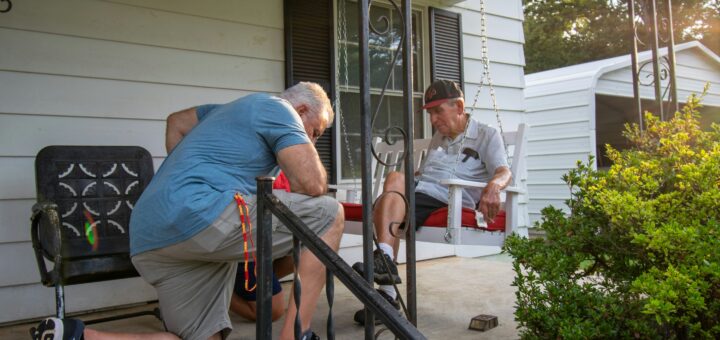How Does a Hospitable Culture Apply to Local Outreach?

We’re in an ongoing series called Hospitable Culture. The big question is this: What if hospitality isn’t something we do, it’s simply who we are? In other words, what if we could bump hospitality beyond the borders of an official team, and work it into every crevice of the church?
So far in this series, we’ve largely explored the concept of hospitable culture as it applies inside the walls of the local church: whether it’s the worship team or kids ministry, the front desk or our facilities, most of what we’ve talked about so far happens on Sunday morning, or at least during the week but on our property.
But hospitality isn’t just a corporate calling. It’s a personal mandate. And that means that if our personal hospitality ends at the last amen of a Sunday morning service, we’ve failed both our calling and our community.
Throughout history, Christians have (mostly) been known for their selfless care for the city that may offer nothing in return. That starts in the Old Testament with God’s calling upon Abraham to care for the sojourner. It continues in Isaiah with God’s call to “seek the welfare of the city where I have sent you…for in its welfare you will find your welfare.” And on and on…you know the drill.
One of my favorite historical anecdotes is a a quote from Roman Emperor Julian the Apostate (what a nickname!) who said of Christians, “[They] support not only their poor, but ours as well, all men see that our people lack aid from us.”
A strong hospitable culture inside can’t resist carrying that strong hospitable culture outside.
While there are any number of things we could say about how hospitality affects local outreach, today I want to focus on two primary drivers of how the church gathered interacts with the church scattered:
1. The best ideas for ministry come from our congregation.
This is a line that our pastor has used for years, and it’s true. The vast majority of our local outreach projects – big or small, one-offs or ongoing – are not things cooked up in a staff meeting, they are callings that began in the hearts of our people. When I think about this primary driver…
…I think about my friend Kelly, who befriended a homeless woman and helped her and her family find everything from housing to dental care.
…I think about two teachers at a local elementary school, whose hearts to serve under-resourced students exploded into partnerships with schools all over our region.
…I think about my friend Lou, one of our precious senior adult ladies who has faithfully served at an inner-city housing project every Saturday for years.
…I think about my daughter-in-law Alyssa, who is currently using her vocation, gifts, and passions to explore and build a ministry to widows and shut-ins.
…I think about a small group who banded together to fund a needed surgery for a group member’s co-worker…someone who didn’t even attend our church.
Even this week, as this post goes live, the western part of our state has experienced historic and catastrophic flooding as a result of Hurricane Helene. Within a 36 hour period our congregation collected and sent three 18 wheelers full of bottled water to the affected area, with many more supplies to come. But that response was largely just us catching up to what our people were already committed to doing. We simply provided an infrastructure for their generosity.
2. We must know the difference between own, catalyze, or bless.
Another line we’ve used at our church through the years, “own, catalyze, or bless” helps us – and our members – know how their passion and our infrastructure might intersect when it comes to local outreach.
There are ministries that we as a church might own: we cooked up the idea in a staff meeting or felt that calling during a season of prayer. We allocate budget money and maybe a staff position towards it. We promote and recruit and provide opportunities to serve in that area.
Then there are ministries we catalyze: a member or members get involved in an area of local outreach. They’re already helping at a school or a homeless shelter or a pregnancy support center. If it’s an area that aligns with a strategic focus, we will often come alongside to provide funding, volunteers, and promotion.
And finally, there are ministries we bless: these may be short-term opportunities. Great initiatives that aren’t necessarily in a strategic area for us. But because we believe in those things and want to champion our members, we’ll still try to find a way to support them, even if we can’t push funds or people towards it.
Do you know which of the areas above make up the majority of our congregation’s world when it comes to local outreach? It ain’t the first one. Again, most of the time we’re playing catch up to what God is already doing through our people who are already serving in ministries. We get to serve as a catalyst to take what God is doing in their lives and pour a little fuel on that fire.
If we’re building strong cultures of hospitality inside, it’s just a matter of time until that culture spills over to the outside. How are you calling your congregation to a higher vision of hospitality, and catalyzing them to serve their city?
photo credit: Audra Potter
